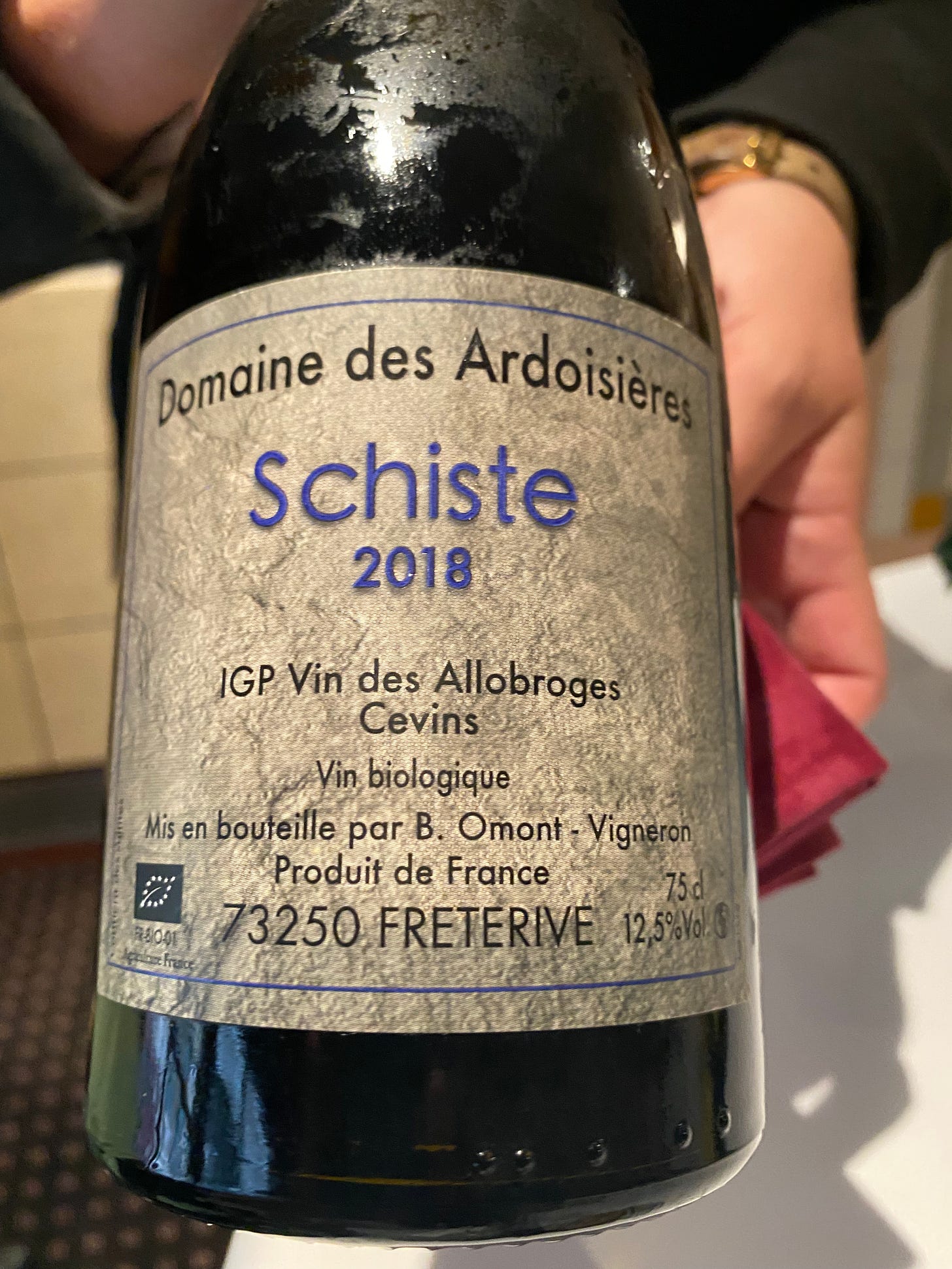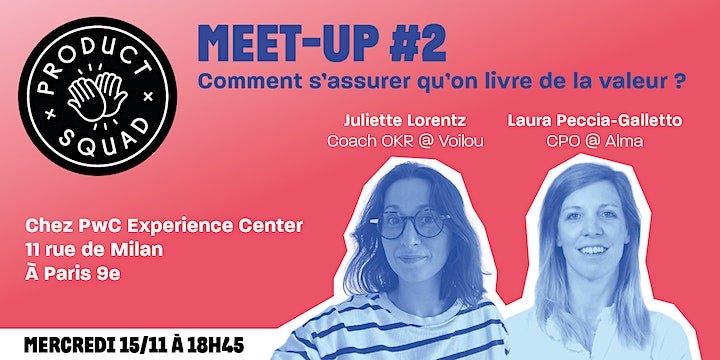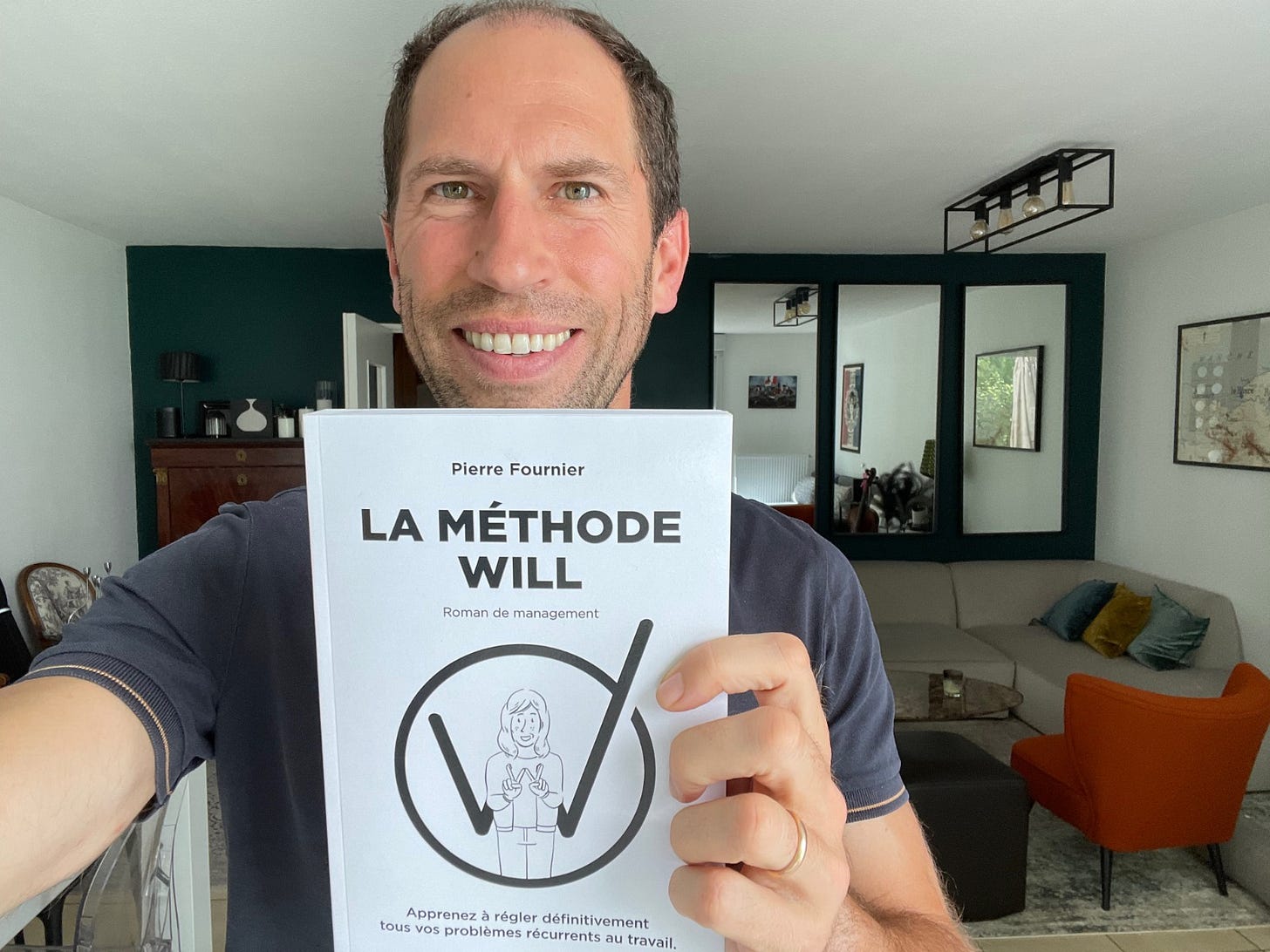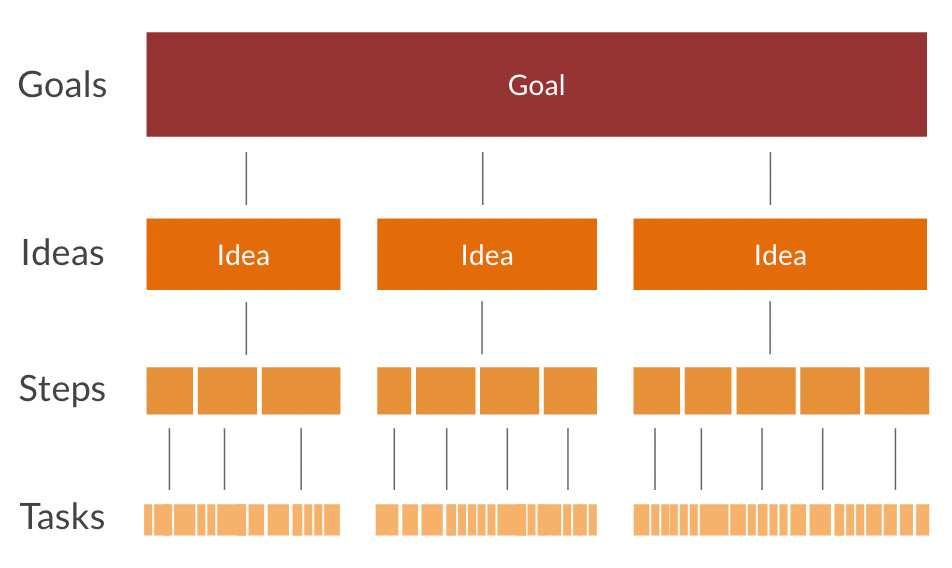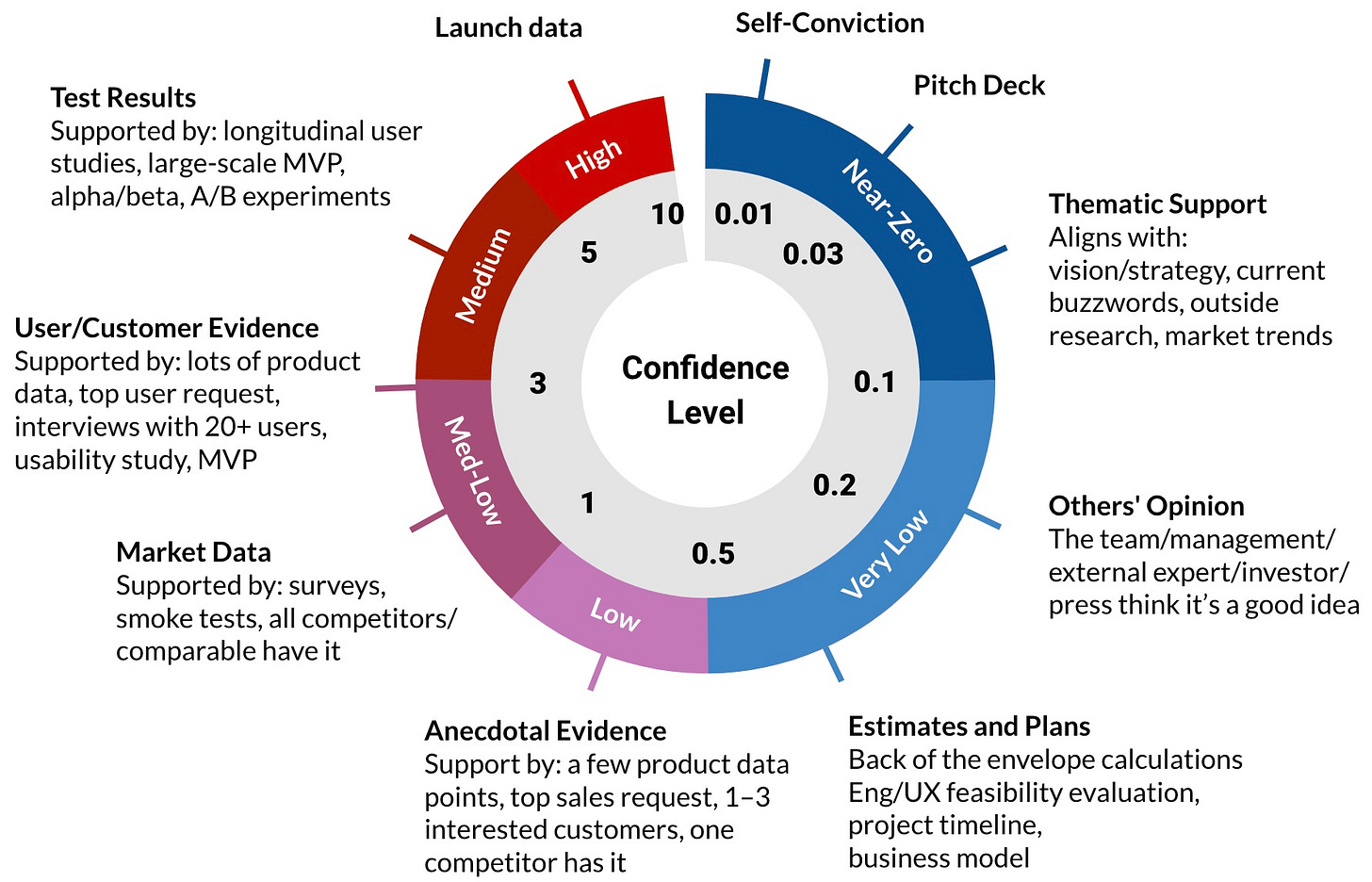AB #011: Product principles, PMs want to unionize, Meetup #2, La Mère Brazier
Breaking Down Product Principles, a trip to Lyon, Product Squad Meetup is back + new podcast episode
In today’s bento…
🌌 Damien gets meta about product principles
🍽️ The most baby/family-friendly fine dining experience
👷🏽♂️ Some US-based PMs want to unionize 🍿
🏔️ Pierre Fournier is back on Product Squad to talk about Will ✨
🎁 Win a copy of Evidence Guided by my friend Itamar Guilad
A principle for product principles
I like principles.
When I was younger, learning French at school, I was fascinated by what we call le présent de vérité générale, a grammatical feature of the present tense that expresses a gnomic aspect, e.g. a universal aspect that expresses general truths.
Water boils at 100 degrees celsius.
The Earth revolves around the Sun.
The Eiffel Tower is in Paris.
I was on the hunt for principles that are always true - and I found my quest very entertaining.
Fast-forward a few years, now in the corporate world, my next encounter with principles was less exciting.
“We work hard and play hard”.
“We are people centered”.
“Simple is smart”.
Do they have more to do with creating a brand and attracting talent than with what the company is actually building?
Looking at all those principles bragging about “Simplicity” left me wondering whether there was an innovative company that really took pride in creating very complex products.
In the last few years, I have witnessed a growing number of companies and of product teams sharing their product principles online. One of the goals was probably to make their product culture attractive and to advertise it, yet what always struck me was the number of teams who chose the same principles. Speed, Impact, Good Design, Simplicity, you name it. And I started to wonder…
Do these principles actually help product teams navigate uncertainty and ambiguous situations?
If I were to write a punchline, it would sound like this:
“Everything in product management is about trade-offs. Except trade-offs. Trade-offs are about priorities.”
I like to think of principles as merely short memorable statements that highlight trade-offs being made, and therefore, priorities. Useful principles shouldn’t be in vain, but rather a tool for decision-making, aligned with the company’s core.
Coming back to the “Simplicity” example - not a bad thing per se - it could be reformulated to a trade-off statement valuing a lower feature density for the sake of simplicity. For a “Good Design” principle, I’d highlight the trade-off made around velocity. For any two-sided ecosystem, prioritizing segment A over segment B. And not be afraid to say so. Famously, eBay always prioritized customers over sellers when there was a trade-off to be made.
So what’s our takeaway?
Sometimes, we indeed make decisions based purely on instinct, but I think there is a way to get to the root of alignment or misalignment. Grab a few post-its and ask your product teams what trade-offs or priorities are repeatedly either made - or not made. Any disagreement based on the post-its is probably a good start for a discussion about principles.
Let’s be on the hunt for more statements expressed in présent de vérité générale!
Some PMs in the US would like to unionize and…spoiler alert: some strongly disagree.
Reddit is a source of infinite inspiration for trending topics and rants about pretty much anything and everything. And god, is it entertaining. 🍿
This week, something got me intrigued.
Someone (Sharknest) started a thread a few days ago to enquire about unions (🇫🇷 syndicat) for Product Management employees citing the following reasons
Lack of standardised roles and responsibilities across the industry
Pay disparity
Lack of clarity on what good looks like
This is particularly interesting - to me anyway - for a couple of reasons:
It shows that while there are still many dimensions of the role and craft that need a form of standardisation, we’re definitely at a higher maturity than, say, 4-5 years ago.
Product Management is emerging as a clearly defined practice, with a body of practitioners who identify with this role across geographies, sectors, verticals, etc.
Like everything on Reddit though, you’ve got to take this with a pinch (maybe heap) of salt.
The same threads also reveal that perception of the PM role both by practitioners and 3rd parties is still biased and, in many cases, not an accurate reflection of the reality of the role.
On top of that, the role is highly contextual.
I’m watching this space anyway. 👀
🏞️ Worthy Eateries
3-weeks after our first child was born, I was adamant that we don’t give up good habits we’d taken over the years.
Before we left the maternity ward for home, a midwife shared some words of wisdom with us:
Your child needs to adapt to your ways of life, not the opposite.
Let me tell you now. This did not fall on deaf ears.
We took Zoey, our 1-month-old baby, on a trip across all of France, from Rennes to Menton with an overnight stop in Lyon. We are truly blessed to have an impeccable train network in France.
Lyon was handy because it is halfway through our trip and home to one of France’s most well-regarded culinary institutions: La Mère Brazier. ⭐️⭐️
Highlights
Ceviche de Maigre Ikejime
Pigeon rôti sur coffre
Soufflé fruits rouges
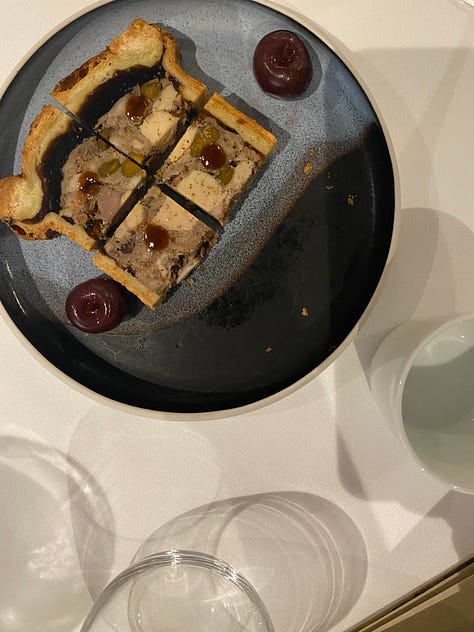

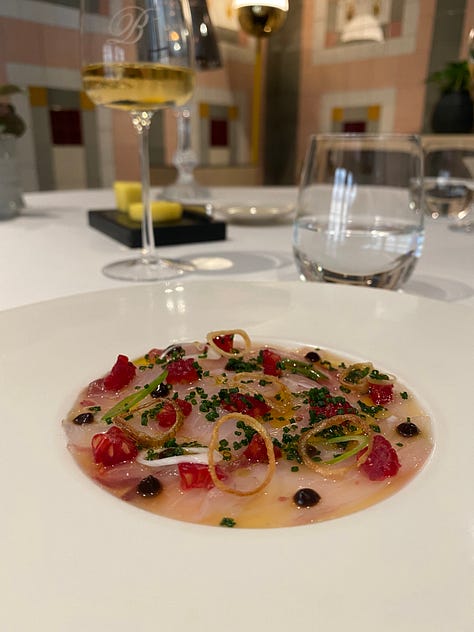





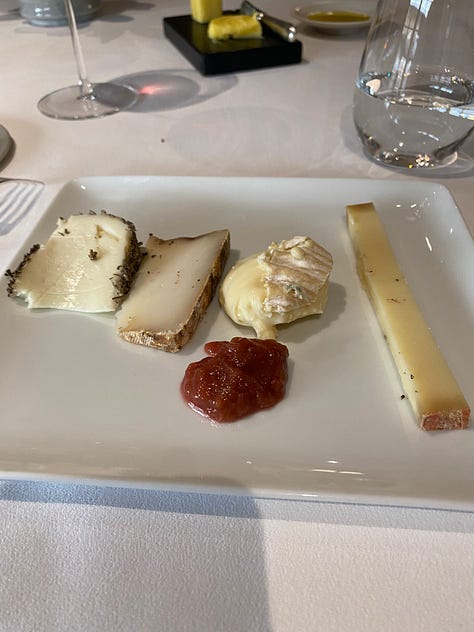
If you’re a parent, you might know the feeling sometimes of entering a restaurant and scanning the faces of diners who clearly dread the moment your child will send their dining experience into chaos.
Ahead of our visit, I called to say we would come with our baby and a stroller.
Little did I know that this small piece of information would mean an upgraded dining experience.
We were welcomed by the Maitre D, and they helped us take the stroller to…our private dining room.
A separate dining room where we were isolated enough that noise wouldn’t be a problem either way. It also meant we could feed Zoey as and when needed and weren’t impacting service in any way.
A most singular wine 🍷
L'une des deux grandes cuvées d'un des meilleurs domaines de Savoie.
L’Ardoisière est sans nul doute dans le top 3 des plus grands vignerons savoyards.
Ça vaut clairement le détour avec une note de 92/100 au Guide RVF des Meilleurs Vins de France 2021 (nov. 2020).On est sur une minéralité impressionnante qui se développe sur le floral et le végétal.
Product x Food: If you’re a die-hard foodie and would enjoy an exceptional meal with other foodies like Damien, Louisa and me, please let me know by replying to this email.
I want to get a sense of how many readers here could be part of a group dining experience. 💛
Product Squad Meetup #2 - Nov ‘23
After an amazing and successful 1st edition where we experimented with a new format, inclusive of all and highly interactive, Product Squad Meetups are back.
We’re tackling a tricky topic: how do you ensure you’re delivering value as a PM?
At the core of Product Squad values, is a strong will to talk about these tricky topics that still need to be addressed in a way that is inclusive of everyone and with much-needed simplicity.
We’ve invited 2 speakers to walk us through their journey on this topic
Juliette Lorentz - Freelance OKR Coach
Laura Peccia-Galletto - Chief Product Officer at Alma
Don’t miss out…
📆 November 15th 2023
📍 PwC Experience Center Paris
Pierre Fournier is back on Product Squad!
Pierre was one of the first guests on the podcast shortly after its launch.
He’s back today to tell us about his book launch, “La Méthode Will”.
This episode is really down-to-earth and the very first one I recorded in studio with someone on-site in Paris.
It is in French and I hope you’ll love it. 💛
Refer Axel’s Bento 🍱 and win a chance to grab Evidence Guided by my friend Itamar Gilad
Research shows that most of what we build creates little or no value for our users and the business. To break away from this harsh reality, you need to adopt a different system, one that combines human judgment with evidence.
In this book, Itamar Gilad presents an actionable model to bring evidence-guided development into your organization. Combining tried-and-tested methods with tools created by the author, Evidence-Guided offers a systematic approach—the GIST model (Goals, Ideas, Steps, and Tasks)—to help you create high-impact products.
You'll learn how to choose the right outcomes, prioritize ideas, build and learn at a fast pace, and collaborate more effectively with teammates, managers, and stakeholders. The book provides principles, models, processes, and tools (such as the popular Confidence Meter shown below) all demonstrated through real-world examples and infused with nuance gained through years of practice.
Enter the prize draw by referring 5 friends to Axel’s Bento.
🎁 There are 3 eBook copies to win!!!
Winners will be announced in a couple of weeks.
To enter the draw, you must refer at least 5 friends while being logged in with your substack account (otherwise I have no way to know who you are 😅).
Want to help by contributing (long form written content)? Drop me a note.
Peace out! ✌🏽
📣 I’m looking for sponsors for the podcast.
Drop me a note if you want to know more!






